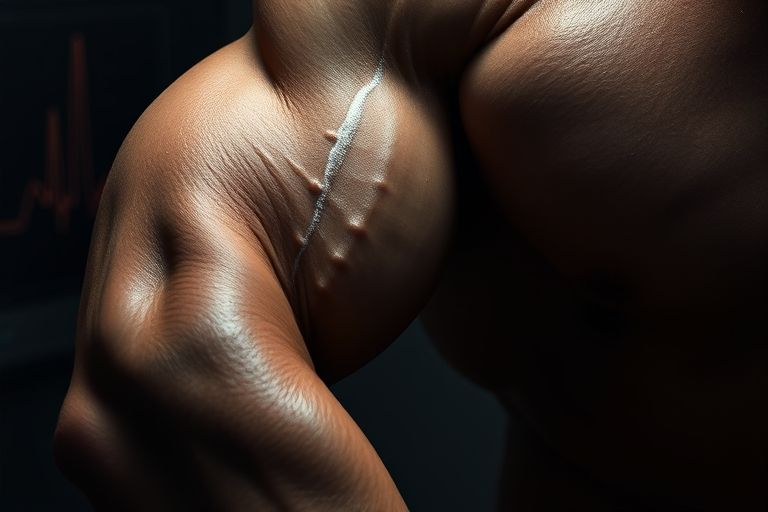

When we think of bodybuilders, we often associate them with strength, discipline, and a commitment to physical fitness. These individuals spend countless hours in the gym, pushing their bodies to the limits in pursuit of a sculpted physique. However, behind the bulging muscles and chiseled abs, there may be a hidden risk that many are unaware of - an increased susceptibility to heart attacks. In this article, we will delve into the potential risks that bodybuilders face and explore the factors that contribute to their cardiovascular health.
Bodybuilders engage in intensive resistance training to build and shape their muscles. This type of training involves lifting heavy weights, which places significant stress on the cardiovascular system. As the muscles contract and exert force, blood pressure rises, and the heart must work harder to pump oxygenated blood to the muscles. Over time, this continuous strain on the heart can lead to various cardiovascular complications.

In the pursuit of a perfect physique, some bodybuilders turn to anabolic steroids to enhance their muscle growth. While these synthetic hormones can indeed increase muscle mass, they also come with a host of adverse effects. Steroids can disrupt the delicate balance of hormones in the body, leading to an increase in LDL cholesterol (the "bad" cholesterol) and a decrease in HDL cholesterol (the "good" cholesterol). This imbalance can contribute to the development of atherosclerosis, a condition characterized by the buildup of plaque in the arteries.

Bodybuilders often follow strict and extreme diets to achieve their desired level of leanness. These diets typically involve severe calorie restriction and manipulation of macronutrient ratios. While this approach can help shed excess body fat, it can also have detrimental effects on cardiovascular health. Rapid weight loss and nutrient deficiencies can lead to imbalances in electrolytes, such as potassium and magnesium, which are vital for maintaining a regular heartbeat. Additionally, extreme dieting can increase the risk of developing arrhythmias and other cardiac abnormalities.
Given the potential risks associated with bodybuilding, it is crucial for individuals engaging in this activity to undergo regular cardiovascular screenings. These screenings may include assessments of blood pressure, cholesterol levels, and cardiac function. By monitoring these parameters, athletes can identify any potential issues early on and take appropriate measures to mitigate their risk.

While bodybuilding can pose risks to cardiovascular health, there are steps that individuals can take to minimize these risks. Firstly, maintaining a balanced and nutritious diet that provides all the essential nutrients is crucial. Adequate intake of fruits, vegetables, lean proteins, and healthy fats can support overall heart health.
Secondly, incorporating regular cardiovascular exercise into the training routine can strengthen the heart and improve its efficiency. Engaging in activities such as jogging, swimming, or cycling can help maintain a healthy cardiovascular system.
Lastly, it is important for bodybuilders to prioritize rest and recovery. Overtraining can place excessive stress on the body and increase the risk of cardiovascular complications. Incorporating rest days into the training schedule and getting sufficient sleep are essential for optimal recovery and overall well-being.
While bodybuilders may appear to be the epitome of health and fitness, their pursuit of physical perfection comes with potential risks, particularly concerning cardiovascular health. The intense training, steroid use, and extreme dieting associated with bodybuilding can place significant strain on the heart, increasing the likelihood of heart attacks and other cardiovascular complications. By prioritizing cardiovascular screenings, adopting preventive measures, and maintaining a healthy lifestyle, bodybuilders can mitigate these risks and continue to pursue their passion for building muscle while safeguarding their heart health.
Remember, achieving a strong and aesthetically pleasing physique should never come at the expense of your overall well-being.